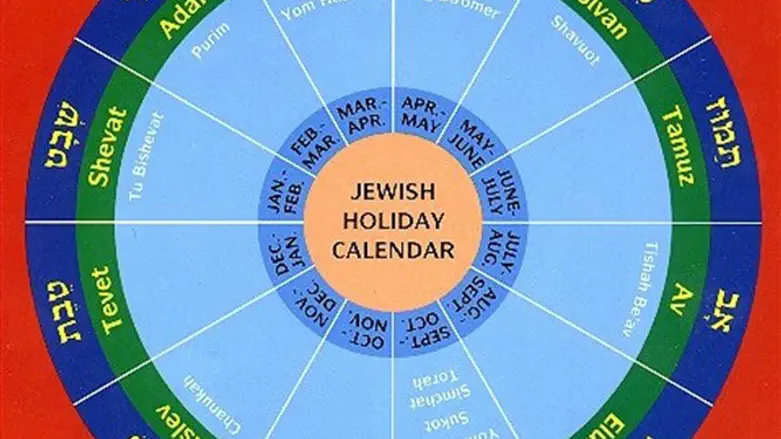
Between the lunar and solar calendars there is a difference of 11+ days.
The gap needs to be bridged if Pesach is to fall in the spring as required by the law of the Torah (Ex. 23:15 etc.). Hence 7 times in 19 years an extra month is added to the Jewish calendar. If it appears that Pesach will be coming early, the extra month acts as a corrective.
At an early period this was arranged on a pragmatic basis. It would not always be known in advance that the extra month would be added. Hence the Mishnah (M’gillah 1:4) informs us, "If they had read the Megillah in the first Adar and then a leap year was proclaimed, they read it again in the second Adar".
When the authorities decided that the new moon of Nisan had arrived, messages were sent out through the Jewish world.
When Christianity emerged, both Jews and Christians found themselves waiting for this announcement. The Jews now counted 15 days and observed Pesach; the Christians counted 15 days and observed Easter.
However, Christian reliance on the Jewish authorities came to an end in the early 4th century when the Roman empire became Christian. The emperor Constantine determined to break the link between Pesach and Easter and determined that Easter observances were to commence on a Friday regardless of Pesach.

The Emperor Constantine
Not all Christian groups accepted his edict and the emperor now prohibited the long entrenched Jewish practice of announcing a new moon.
The Jewish calendar now lost a traditional ceremony but Hillel II ensured that there would never be a doubt as to Rosh Chodesh by proclaiming the intricate calendrical rules which govern the Jewish year.
The Jewish people continued to announce each month (other than Tishri) after consulting the fixed calendar.
(Why no announcement was made of Tishri is that in days when eyewitness testimony of the new moon led to the sending of messages, Tishri presented a problem. As the only month which had a festival, Rosh HaShanah, on Rosh Chodesh itself, the sending out of messages would conflict with the laws of yom-tov and in any case the messages would probably not arrive in time for most communities to observe the festival.)
Rabbi Dr Raymond Apple AO RFD is Emeritus Rabbi of the Great Synagogue, Sydney. He is now retired and lives in Jerusalem, where he publishes OzTorah, a weekly email list and website with Torah insights from an Australian perspective